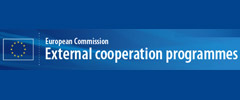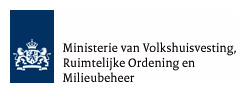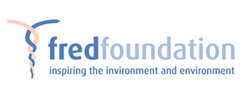TMF start-up meeting
Partners from Armenia, Uzbekistan and Afghanistan join for the begin of the four year TMF project
20.02.2005 |Sascha Gabizon

The participants of the start-up meeting in Yerevan
In Yerevan, the capital of Armenia, 15 members of WECF's project team met from 7 – 11 February 2005 for the start-up meeting of the 4 year TMF project granted by the Netherlands Ministry of Foreign Affairs.
In the start-up meeting the partners from Uzbekistan and Armenia (the Afghan partners had to be in Kunduz, and were represented by the project coordinator) worked together with the WECF project team on preparing the detailed workplans and budgets for the project. Furthermore, the partners were trained in project planning tools such as base-line analysis, stakeholder analysis and monitoring and evaluation plans.
In addition, the project partners visited the 3 villages where the project will be implemented in Armenia, the villages of Hianist, Fontan and Djorabjhur. There are many similarities between the situation in the 3 project areas.
The project aims at poverty reduction in the target areas through improved water and sanitation, waste managment and development of a greater diversity of income generating activities, among others in (organic) farming.

Photo: 1 of the 17 wells in Hianist. Some 600 villages in Armenia do not have an official drinking water supply. In Hianist - one of the 3 project villages - the 17 artesian wells provide irrigation water, but the villagers use them for their drinking water supply.

Photo: The school latrines in Hianist, bordering the drainage canal, are in a very bad state. The feacal materials infiltrate the canals and in this way untreated sewage is mixed with irrigation water on the agricultural fields.

Photo: Heating in the school. There is no more central heating in the school of Hianist with it's 200 children. The school now uses diesel burners. The classrooms smell as if a truck is standing among the school-tables with it's motor running. This probably has severe respiratory effects, especially for the smallest children.

Photo: This well provides water for free for the villagers of Fontan. There is also a new well, but the villagers have to pay 4 USD per month for that one (on an average salary of 40 USD). In summer 2004, 150 people in the village fell ill of a pest-like infectious disease (Tularemia) caused by the water of the old well.
The project will develop demonstration projects, with a focus on involving women in project implementation and local decision makgin. The demonstration projects will help to identify legislative, institutional and cultural barriers as well as catalysts and appropriate technologies.
The lessons will be used to replicate and upscale the results and prepare recommendations for national and international policy making, in particular in reaching the Milennium Development Goals.
The international policy work will be carried out within the framework of the WSSD partnership Women for Water, Water for Women, of which WECF is one of the founding members (www.womenforwater.org).
The project partner for Armenia is the NGO Armenian Women for Health and a Healthy Environment (www.awhhe.ar), for Uzbekistan the NGO Mehriban and for Afghanistan Katachel e.V. (www.katachel.de).

































